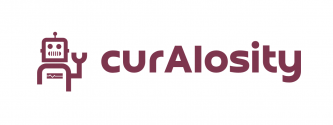Table of Contents
- 1 Future of Healthcare with AI and Machine Learning
Future of Healthcare with AI and Machine Learning
In the ever-evolving landscape of healthcare, groundbreaking technologies are reshaping the industry’s future. Among these transformative forces, Artificial Intelligence (AI) and Machine Learning (ML) stand out as potent allies, poised to revolutionize patient care, medical research, diagnostics, and much more. Future of Healthcare with AI. The fusion of AI and ML with healthcare has already begun to demonstrate its immense potential, paving the way for a brighter and more efficient future in the medical realm.
Understanding the Power of AI in Healthcare
AI is no longer a far-fetched concept confined to science fiction. It has rapidly become a formidable tool in various industries, and healthcare is no exception. Future of Healthcare with AI. AI brings the promise of enhancing patient outcomes, streamlining medical processes, and reducing the burden on healthcare professionals.
1. Precision Diagnostics and Personalized Treatment
AI’s prowess in analyzing vast volumes of data with speed and accuracy enables it to revolutionize diagnostic processes. Advanced algorithms can examine medical imaging results, such as X-rays, MRIs, and CT scans, with unparalleled precision. Consequently, early detection of diseases becomes more feasible, leading to timely interventions and improved patient prognoses.
Moreover, AI’s ability to crunch genetic and clinical data empowers clinicians to tailor treatment plans uniquely for each patient. Future of Healthcare with AI. Personalized medicine holds the potential to optimize drug efficacy, minimize side effects, and ensure faster recovery rates.
2. Predictive Healthcare Analytics
One of AI’s transformative contributions is its role in predictive analytics. By analyzing historical patient data, AI algorithms can forecast disease patterns, potential outbreaks, and patient risk factors. Future of Healthcare with AI. This foresight equips healthcare providers with invaluable insights, allowing them to proactively allocate resources, manage public health crises, and implement preventive measures.

The Emergence of Machine Learning in Healthcare
Machine Learning, a subset of AI, amplifies the potential of data-driven decision-making in healthcare. Through sophisticated ML models, computers learn from data patterns and iteratively improve their performance without being explicitly programmed.
1. Drug Discovery and Development
Traditionally, drug discovery and development have been a laborious and time-consuming process. ML algorithms have revolutionized this field by expediting the identification of potential drug candidates. By simulating molecular interactions and predicting drug behavior, ML expedites the selection of viable compounds, significantly reducing development timelines.
2. Enhancing Clinical Decision Support
In the fast-paced environment of healthcare, timely and accurate clinical decisions are vital. ML-based clinical decision support systems empower healthcare professionals with evidence-based insights, treatment recommendations, and risk assessments. This real-time guidance enhances diagnostic accuracy, aids in complex treatment choices, and ultimately improves patient outcomes.
Ensuring Ethical AI and Machine Learning Adoption
As AI and ML gain momentum in healthcare, it becomes crucial to address ethical considerations to uphold patient trust and safety.
1. Privacy and Data Security
Healthcare organizations must ensure that sensitive patient data remains secure. Rigorous encryption protocols, access controls, and anonymization techniques are essential to safeguard patient privacy.
2. Transparent Algorithms and Explainability
In critical healthcare scenarios, it is imperative for AI and ML algorithms to be transparent and interpretable. Clinicians must understand the reasoning behind algorithmic decisions to make informed choices and provide appropriate justifications to patients.
Challenges and Future Prospects
While the future of AI and ML in healthcare appears promising, certain challenges must be acknowledged and addressed.
1. Data Quality and Bias
AI algorithms heavily rely on vast and diverse datasets for training. Ensuring data quality and mitigating biases are essential to prevent AI-driven decisions from perpetuating existing inequalities in healthcare.
2. Regulatory Compliance
The adoption of AI and ML in healthcare demands clear regulatory frameworks to maintain safety standards and ensure ethical practices.
Conclusion
The marriage of AI and ML with healthcare represents a transformative juncture in the evolution of medicine. By leveraging these technologies responsibly, we have the potential to enhance patient care, optimize treatments, and revolutionize medical research. As the future unfolds, embracing the power of AI and ML in healthcare will undoubtedly lead to healthier lives and a more resilient global healthcare ecosystem. Future of Healthcare with AI. The journey towards a smarter, AI-driven future has just begun, and we stand at the forefront, ready to shape the healthcare landscape for the better.
AI: Artificial Intelligence
ML: Machine Learning
Frequently Asked Questions (FAQs) about AI and Machine Learning in Healthcare
- How can AI and Machine Learning revolutionize the healthcare industry?AI and Machine Learning have the potential to transform the healthcare industry in several ways. By creating intelligent processes and workflows, these technologies can make healthcare more cost-effective, personalized, and equitable. Future of Healthcare with AI. AI’s predictive capabilities can improve patient outcomes by assisting in early diagnosis and treatment planning. Future of Healthcare with AI. Moreover, ML can expedite drug discovery, enhance clinical decision support, and automate repetitive tasks, freeing up healthcare professionals to focus on critical patient care.
- What are some examples of AI applications in the healthcare sector?There are several noteworthy AI applications in healthcare. For instance, AI is being used to predict emergency department volumes, allowing for better staffing and triage. Additionally, natural language processing is helping radiologists interpret patient scans more accurately, while AI-driven clinical workflows are automating repetitive tasks and improving overall healthcare efficiency. These examples highlight the transformative potential of AI in optimizing healthcare delivery.
- Why hasn’t AI been fully integrated into the healthcare system yet?The adoption of AI in healthcare has been a gradual process due to various reasons. One significant factor is the need for healthcare leaders to understand how AI can add value by changing clinical workflows and operational processes. To fully leverage AI’s potential, senior leaders must grasp its capabilities and how it can personalize patient care efficiently and compassionately. As awareness and understanding grow, we can expect more comprehensive integration of AI in healthcare systems worldwide.
- Will AI replace healthcare providers in the future?While AI will significantly impact the healthcare industry, it is unlikely to replace healthcare providers entirely. AI excels in pattern recognition and data analysis, which can aid in diagnosis and treatment planning. Future of Healthcare with AI. However, human healthcare professionals bring wisdom, empathy, and creativity to the care process, elements that AI cannot replicate. Instead of replacing jobs, AI will empower healthcare providers, making them more efficient and enhancing patient experiences.
- How can healthcare workers prepare for AI integration into the healthcare system?Healthcare workers can prepare for AI integration by understanding the capabilities and power of this technology. Awareness of AI’s potential allows healthcare professionals to adapt to future trends and embrace the changing landscape. Training programs and workshops can help clinicians familiarize themselves with AI tools and applications, enabling them to use AI as a valuable ally in providing personalized, efficient, and compassionate care to patients.
